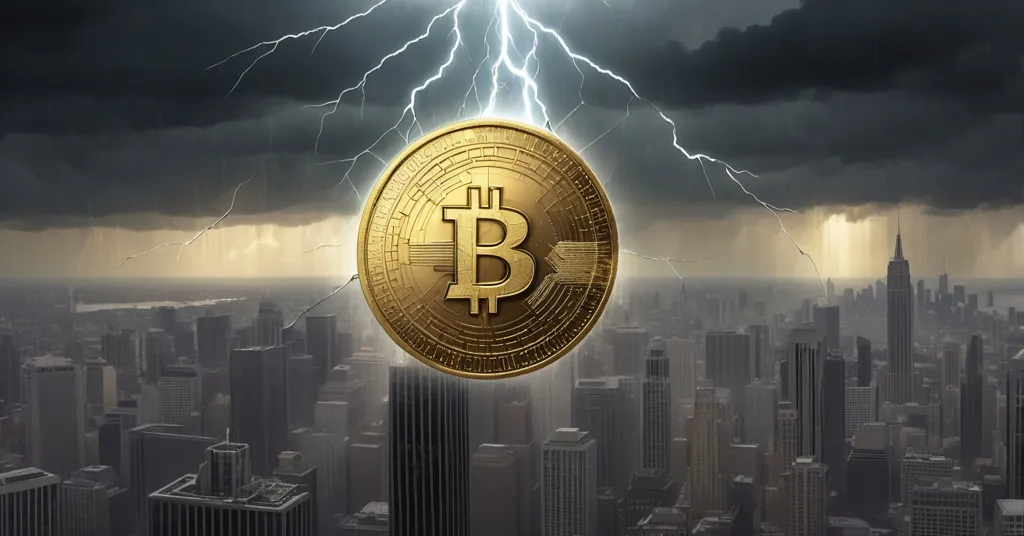SEC Drops Binance Lawsuit: Is the Crypto Giant’s Dominance Already Shattered?

SEC Dismisses Binance Lawsuit: Has the Damage to Crypto’s Giant Already Been Done?
The U.S. Securities and Exchange Commission (SEC) has dropped its nearly two-year civil lawsuit against Binance, the world’s largest cryptocurrency exchange, and its founder Changpeng “CZ” Zhao, as of May 29, 2025, in a Washington, D.C. federal court. While this dismissal—filed with prejudice, meaning it can’t be refiled—marks a legal reprieve for Binance, the critical question looms: has the damage from this regulatory showdown already gutted the exchange’s dominance in the crypto space?
- Legal Win, But at a Cost: SEC lawsuit against Binance and CZ dismissed with prejudice on May 29, 2025.
- Market Share Plummet: Global trading volume share dropped from over 55% in early 2023 to 38% by April 2025.
- Ongoing Struggles: U.S. market erosion and global regulatory battles persist despite the dismissal.
The SEC’s Hammer Falls: Initial Fallout in 2023
Back in June 2023, the SEC came down hard on Binance, accusing the exchange of violating securities laws, misleading investors, and engaging in a slew of shady practices. Tokens like Solana (SOL), Cardano (ADA), and Polygon (POL) were flagged as unregistered securities—essentially, the SEC claimed these digital assets should be treated like stocks, requiring strict compliance with traditional financial regulations. For those new to the term, an unregistered security is an asset not filed with regulatory bodies like the SEC, which can lead to legal trouble if traded on platforms without proper oversight. The fallout was immediate and brutal. Within 24 hours of the lawsuit’s filing, panicked customers withdrew roughly $790 million from Binance platforms, with the U.S. arm, Binance.US, taking the hardest hit. Market depth on Binance.US—a measure of buy and sell orders at different price levels, think of it as a store’s inventory—tanked by over 75%. Low market depth means trading gets sluggish, price gaps widen, and users flee for greener pastures.
The damage didn’t stop there. By November 2023, Binance was slapped with a staggering $4.3 billion settlement by the Department of Justice (DOJ) for anti-money-laundering and sanctions violations—basically, failing to ensure funds weren’t tied to illicit activities. As part of the plea deal, CZ resigned as CEO and later served a four-month sentence, released in September 2024. While the DOJ case tackled criminal issues, the SEC’s civil lawsuit kept Binance under a dark cloud, especially in the U.S., where regulatory pressure under then-SEC Chairman Gary Gensler was relentless. Binance.US, already a shadow of its global parent since Binance.com exited the U.S. market in 2019 over compliance hurdles, saw its relevance fade fast. Banking relationships crumbled, fiat on-ramps—ways for users to deposit dollars or other traditional currencies—became a nightmare, and trading turned into a ghost town as competitors like Coinbase and Kraken swooped in with their compliance-first playbooks. To understand more about the background of this exchange, you can explore its history on Binance’s Wikipedia page.
Global Gauntlet: Binance’s Regulatory Whack-a-Mole
While the U.S. painted a grim picture, Binance’s woes stretched far beyond American borders. Once commanding over 55% of global trading volume in early 2023, the exchange’s share slumped to 38% by April 2025—a gut-wrenching 30% drop. Sure, they still processed an estimated $7.35 trillion in trades during 2024, but their iron grip on the market is slipping. Regulatory beatdowns have hit from every angle. In Europe, Belgium suspended Binance services, the Netherlands issued a €3.3 million fine in 2022, and France opened a tax fraud investigation. The UK’s Financial Conduct Authority and Japan’s regulators threw up roadblocks, while Nigeria slammed Binance with an $81.5 billion lawsuit over alleged currency instability, though tax evasion charges against executives were later dropped after a local representative was appointed. Australia recently sued Binance’s derivatives unit for consumer protection failures, and that’s just scratching the surface. For the uninitiated, these regulatory actions often disrupt fiat on-ramps and user trust, making it harder for exchanges to operate smoothly or attract new blood. For a deeper look into these ongoing issues, check out the latest on Binance’s global regulatory challenges.
This global fragmentation is a nightmare for any crypto platform. Compliance in one region—like Japan, where Binance reentered with a license in 2023—doesn’t mean squat elsewhere, as the UK or Nigeria can still turn the screws. It’s a stark reminder that crypto, despite its borderless ethos, is still at the mercy of localized bureaucratic whims. From a Bitcoin maximalist lens, I can’t help but smirk—centralized exchanges like Binance are reaping the consequences of playing in a sandbox crypto was meant to destroy. Bitcoin doesn’t grovel to regulators; why should they?
Dismissal Details: A Win Tinged with Political Shadows
So why did the SEC suddenly back off? The timing raises eyebrows. The dismissal came four months into Donald Trump’s return to the White House in 2025, with Paul Atkins—a market-friendly regulator—replacing Gensler as SEC Chairman. A 60-day pause in the case in February 2025 hinted at behind-the-scenes negotiations, and reports of Binance executives cozying up to U.S. Treasury officials and even Trump’s crypto venture, World Liberty Financial, add a layer of intrigue. Whispers of Trump family reps discussing a financial stake in Binance.US only fuel speculation of regulatory favoritism. The SEC played it vague, stating the dismissal was made “in the exercise of its discretion and as a policy matter,” while stressing it doesn’t reflect their stance on other crypto litigation. Binance, predictably, spun it as a triumph. For specifics on this dismissal, you can refer to insights about Paul Atkins’ influence on the SEC’s decision.
“Landmark moment” for the exchange. – Binance
The dismissal was appropriate “in the exercise of its discretion and as a policy matter,” but “does not reflect [the SEC’s] view on other crypto litigation.” – SEC Statement
But let’s not pop the champagne just yet. Binance calling this a “landmark moment” feels like celebrating a band-aid on a broken leg—rebuilding a shattered reputation isn’t a victory lap, it’s a marathon. And the market seems to agree. Binance’s native token, BNB, barely budged with a measly 0.5% bump post-dismissal, signaling investors either saw this coming or don’t see it as a game-changer. Why the shrug? BNB’s value is tied more to Binance’s ecosystem—think discounted fees and staking perks—than to legal wins. Or maybe it’s altcoin fatigue setting in, with traders eyeing Bitcoin as the safer bet amid exchange drama. Community discussions on platforms like Reddit highlight Binance’s regulatory impact on the broader crypto market.
Binance.US on Life Support: Can the U.S. Market Be Salvaged?
In the U.S., the SEC dismissal lifts a legal weight, but the practical hurdles for Binance.US are a mountain to climb. Liquidity is still a desert, banking partnerships are a pipe dream, and trust is in short supply. Competitors like Coinbase and Kraken have played the compliance card masterfully, positioning themselves as Uncle Sam’s preferred crypto hubs while Binance gambled on scale and got burned. Could this push American traders toward decentralized exchanges (DEXs) or Bitcoin-only strategies? It’s a plausible shift—why risk your funds on a centralized platform that’s a magnet for regulatory heat when you can self-custody or trade peer-to-peer? Still, let’s not pretend DEXs are a silver bullet; they come with their own learning curve and risks, like smart contract vulnerabilities. For perspectives on how this lawsuit affected market share, take a look at discussions on Quora about Binance’s market challenges.
For retail investors, Binance’s struggles might sting confidence in crypto exchanges broadly. If the biggest player can crumble under pressure, what’s stopping smaller platforms from folding? This could accelerate a move toward self-custody wallets, where users hold their own keys and ditch middlemen. As a nod to effective accelerationism (e/acc), I’d argue this chaos is a necessary purge—centralized weak links like Binance getting cracked open might just cook up a more resilient, decentralized future for crypto.
New Threats and Silver Linings: Binance’s Road Ahead
Even with the SEC case buried, Binance isn’t out of the woods. Fresh legal battles are piling up—FTX sued Binance and CZ for $1.8 billion in November 2024 over alleged fraudulent transfers, while Australia hit their derivatives unit with a consumer protection case in December 2024. Operational hiccups, like an April 2025 Amazon Web Services outage disrupting the platform, show that regulators aren’t the only thorn in their side. On the flip side, a $2 billion investment from Abu Dhabi-backed MGX in March 2025 signals that some international players still bet on Binance, potentially offering a lifeline in crypto-friendly hubs like the UAE. Could Binance pivot to regions like Dubai, doubling down on partnerships where oversight isn’t a death sentence, or are they doomed to be the poster child for regulatory overreach? For more on CZ’s ongoing legal issues, read up on Changpeng Zhao’s legal battles in 2025.
Globally, the tone set by the SEC’s initial aggression still reverberates, emboldening other jurisdictions to keep the pressure on. Industry watchers note that navigating this fragmented landscape—where a license in Japan doesn’t shield you from a ban in Belgium—is a logistical hellscape. Recovery is possible with the U.S. legal cloud lifted, but rebuilding trust and market share while dodging new lawsuits is like fighting a hydra—cut off one head, and two more grow back. For a broader view on these systemic issues, explore academic resources on cryptocurrency regulation challenges for exchanges.
Broader Crypto Implications: A Turning Point or a Mirage?
Zooming out, the SEC dropping cases against both Binance and Coinbase in 2025 might hint at a softer U.S. stance on crypto under the new administration. But it’s not all sunshine and rainbows. Allegations that Justin Sun of TRON saw SEC charges vanish after investing in a Trump-linked venture raise ugly questions about political influence over enforcement. For a space built on disrupting centralized power, watching regulatory decisions potentially swayed by backroom deals is a bitter irony. Bitcoin maximalists like myself can’t help but point out that this mess validates BTC’s design—decentralized, untouchable by any single government or exchange’s downfall. Altcoins and innovative protocols like Ethereum have their place, pushing boundaries Bitcoin doesn’t, but when the chips are down, nothing beats the king’s resilience. To dig deeper into whether this lawsuit’s impact is permanent, see the analysis on the lasting damage from the Binance SEC case.
What does this mean for the average crypto holder? Binance’s instability might nudge you toward safer harbors—whether that’s self-custody, Bitcoin as a store of value, or platforms with tighter compliance like Coinbase. The industry stands at a crossroads: will regulatory clarity finally emerge to boost adoption, or will fragmented oversight and political games keep stifling growth? Binance’s saga is a microcosm of crypto’s bigger battle—freedom versus control. And if we’re being honest, global regulators aren’t exactly rolling out the red carpet for any exchange, win or no win.
Key Takeaways and Questions for Reflection
- What led to the SEC dismissing the lawsuit against Binance?
A shift in leadership to Paul Atkins as SEC Chairman in 2025, alongside a policy decision and likely negotiations—hinted by a 60-day pause in February 2025—resulted in the case being dropped, though specific reasons remain murky. - How much damage did the lawsuit inflict on Binance?
It crippled Binance.US with a 75% market depth collapse and $790 million in withdrawals in 2023, while global trading volume share fell from over 55% to 38% by April 2025—a devastating blow to dominance. - Does the dismissal end Binance’s regulatory troubles?
Hardly. While the U.S. SEC case is closed, investigations in France, a $81.5 billion lawsuit in Nigeria, and new claims like FTX’s $1.8 billion suit keep Binance in the crosshairs worldwide. - What are the wider impacts for the cryptocurrency industry?
A friendlier U.S. regulatory tone under new leadership seems possible with dismissals for Binance and Coinbase, but political influence concerns and global inconsistencies leave the future uncertain for crypto adoption. - Can Binance bounce back to its former glory?
Recovery isn’t impossible with the U.S. legal hurdle gone, but rebuilding trust, liquidity, and banking ties domestically, plus navigating a global regulatory minefield, makes it a grueling uphill fight.



